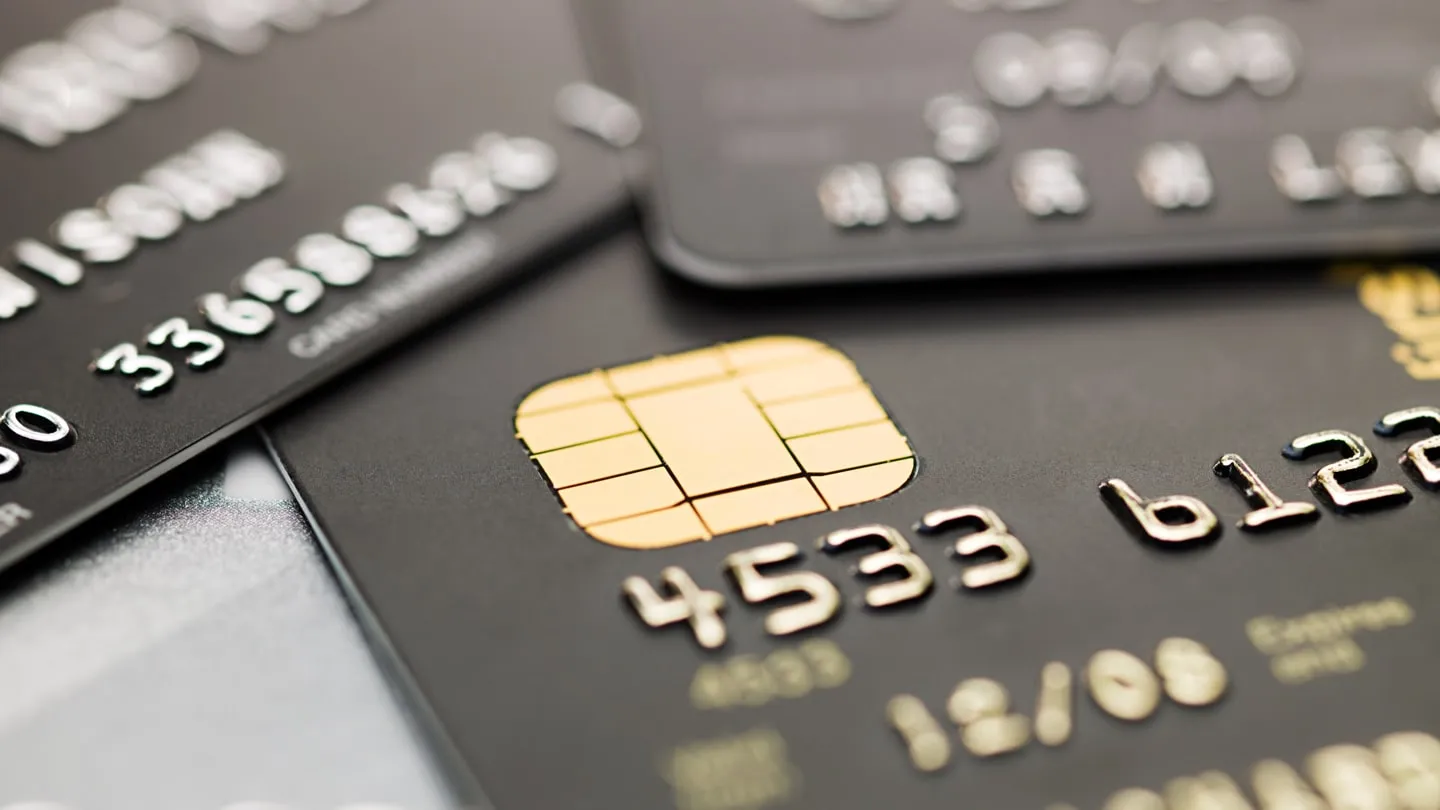
Credit cards are an invaluable tool for managing finances and building credit, but it’s important to know how to use them responsibly. Have you ever thought about how much your credit score affects your financial life? It’s time to find out! From understanding the basics of credit cards and learning how to improve your credit score, to know which type of card is best for you, this article will explore the importance of credit cards and provide tips on how to manage them effectively. So if you’re ready, let’s get started!
The Basics of Credit Cards
Credit cards are an essential tool for managing finances and building credit. To get the most out of them, it’s important to understand the basics. When you apply for a card, you’ll be assigned a credit limit, which is the maximum amount of money you can use on your card before needing to pay it off. Your credit score will be affected by how often and how much you use your card, as well as other factors such as payment history and bill-paying habits. It’s also important to remember that when using a credit card, you’re essentially borrowing money from the issuer so it’s important to pay bills on time and keep your balance low to avoid late fees or penalties. Additionally, it’s always wise to review your credit report regularly to spot any suspicious activity or fraud. With careful management and responsible spending habits, credit cards can be an invaluable asset in helping build a strong financial future.
Using credit cards wisely and responsibly can be a great way to boost your financial health. With the right approach, it can have a positive impact on your credit score, as well as provide an easy way to manage expenses. But that’s not all; next up, we’ll explore the benefits of using credit cards to unlock even more potential!

Benefits of Credit Cards
Credit cards can provide several benefits when used responsibly. They can help build credit, as payments made on time and kept within the credit limit are reported to the credit bureau. This information is then used to generate your credit score, which lenders use to determine whether they will approve loan applications. Credit cards also offer fraud protection, allowing you to dispute any fraudulent purchases and have them removed from your account. Additionally, many cards offer rewards programs, providing bonuses or discounts on everyday purchases like groceries or gas. Finally, most credit cards offer cash advance services so if you need quick access to funds in an emergency, you can use the card for an instant loan. With these benefits in mind, it’s clear that using a credit card wisely and responsibly can be an invaluable asset in helping build a strong financial future.
Understanding Your Credit Score
Your credit score is an important indicator of financial health and a key factor when applying for loans and other forms of credit. Understanding your credit score can help you make wise financial decisions, negotiate better loan terms, and even save money in the long run. To start, it’s helpful to know how your credit score is calculated. Your credit score is based on five major factors: payment history, amount of debt owed, length of credit history, types of accounts used, and recent applications for new credit. All of these components are weighed differently depending on the type of scoring system used by lenders. When assessing your score, it’s important to check for any inaccuracies or outdated information as this can have a negative effect on your overall rating. Regularly monitoring your credit report and understanding how different types of accounts affect your score can help you stay informed about your finances and make well-informed decisions going forward.
By understanding the components of your credit score, you can make better financial decisions and stay informed about your finances and beste kredittkort 2023 tilgjengelig. Stay tuned to find out!
What is a Credit Score?
A credit score is a three-digit number between 300 and 850 that is used to assess an individual’s creditworthiness. It is based on a variety of factors, such as payment history, amount of debt owed, length of credit history, types of accounts used, and recent applications for new credit. Credit scores are used by lenders to determine if an individual should be approved for a loan or line of credit. They also help creditors set interest rates and make decisions about whether to approve. A good credit score typically indicates that an individual is financially responsible and can be trusted with borrowed funds. Conversely, a low score may indicate that an individual has difficulty managing their debts and may present a greater risk for the lender. By understanding your credit score and paying your bills on time, you can help ensure you get the best terms available when making any kind of financial decision.
How to Improve Your Credit Score
Improving your credit score can be a daunting task, but it’s possible with dedication and perseverance. The first step is to obtain a copy of your credit report from each of the three major credit bureaus: Experian, Equifax, and TransUnion. Carefully review your report for any errors or inaccuracies and contact the relevant bureau if necessary. It is also important to pay all bills on time and keep balances low. If you have existing debt, consider consolidating it into one loan with a lower interest rate or working out a repayment plan with your creditors. Additionally, consider limiting everyday purchases on credit cards and avoid taking cash advances or making late payments as these will negatively impact your score. Finally, make sure to open new accounts only when necessary and research different types of cards to find the best fit for you. With patience and discipline, you can make great strides in improving your credit score.
The Impact of Late Payments on Your Credit Score
Late payments can have a significant impact on your credit score as they indicate to potential lenders and creditors that you may not be reliable in terms of making payments on time. When you make a late payment, it is reported to the three major credit bureaus, Experian, Equifax, and TransUnion. This information then becomes part of your credit history and can remain in your report for up to seven years. The longer you wait to make a payment, the more damage it will have on your credit score. Late payments are also accompanied by fees which can further reduce the amount of money available for repayment. Additionally, if you consistently make late payments on your credit cards or loans, this can result in higher interest rates or even denial of future loans and lines of credit. Therefore, it is important to always pay bills on time to protect your credit score.
The Effects of Cash Advances on Your Credit Score
Cash advances are a type of loan that can be obtained from credit card companies. A cash advance allows you to access a certain amount of money from your line of credit and is usually higher than the usual daily limit on your card. While it may seem like a convenient way to obtain funds quickly, cash advances can have serious implications for your credit score.
Payment history is one of the most important factors in calculating your credit score, and cash advances are treated as high-risk loans due to their short repayment period. Additionally, they often come with higher interest rates and fees than regular purchases, meaning you could end up paying more in the long run if you don’t pay off the balance quickly. Furthermore, if you take out too many cash advances or use them too frequently, this could indicate financial instability and negatively impact your credit score. Therefore, it is important to think carefully before taking out a cash advance and consider other options such as installment loans or personal loans instead.
Knowing Your Spending Habits
Understanding and monitoring your spending habits are essential for managing your finances and staying on top of bills. Knowing how much you can afford to spend and when, as well as understanding which areas you tend to overspend in, can help you make better financial decisions. Regularly tracking your spending patterns and trends is a great way to gain insight into where your money is going. This will help you identify and adjust any areas where there may be discrepancies or imbalances between income and expenditure. Additionally, it is important to be honest with yourself about what you can afford. Setting achievable financial goals can help ensure that you don’t overextend yourself and get into unmanageable debt. Finally, having an emergency fund set aside can also provide a safety net in case of unexpected expenses or financial difficulties.
Understanding your spending habits is key to managing your finances and staying on top of bills. Now, let’s explore how understanding periods and everyday purchases can help you gain even greater insight into your financial situation.
Understanding periods and Everyday Purchases
Making smart financial decisions means understanding the importance of both periods and everyday purchases. While it is important to be aware of both, it is essential to recognize how they differ when budgeting. For instance, the timeline for making payments on a credit card balance or personal loan is often much longer than the timeline for paying bills like rent, utilities, and groceries. Additionally, while everyday purchases are typically smaller amounts that can be covered in cash or with a debit card, larger expenses such as car repairs or furniture may require a credit card.
It is also important to understand how regular spending habits over time can impact your credit score. Paying bills on time every month and keeping credit card balances low can help improve your score. However, late payments and high balances can negatively affect your credit report and lead to higher interest rates on loans or other forms of financing. Finally, if you find yourself needing a cash advance it is important to repay it quickly to avoid late payment fees and potential fraudulent purchases.
Understanding periods and everyday purchases can help you gain insight into your financial situation and make smarter budgeting decisions. By carefully analyzing and tracking your spending habits each month, you will have greater control over your finances now as well as in the future.
Analyzing Bills and Payment History Regularly
Analyzing bills and payment history regularly is essential for maintaining control of your finances. By carefully tracking your spending, you can identify patterns, create a budget and make informed decisions about where to allocate your funds. Knowing exactly when bills are due each month is also important for avoiding late payment fees, which can damage your credit score. Additionally, staying up-to-date on payment history can help you better understand how long it will take to pay off debt or loans and if any changes need to be made to reduce interest rates or other associated costs.
In addition to being aware of the timeline for bill payments, it is also important to be aware of credit utilization about your credit limit. Keeping balances low can help improve credit scores while running up high balances can have the opposite effect. Furthermore, if you find yourself needing a cash advance it is important to repay it quickly to avoid late payment fees and potential fraudulent purchases.
By regularly analyzing bills and payment history, you will have greater control over your finances now as well as in the future. Taking the time to review these items each month will allow you to make smart financial decisions that will benefit you long-term.
Dealing with Late Fees and Interest Rates Effectively
Late fees and interest rates are inevitable consequences of using credit cards, but they don’t have to be a burden. By taking proactive steps toward managing your finances, you can minimize the impact of late payments and high-interest rates.
The first step is to establish a realistic budget and stick to it. This will help you stay within your means and avoid overspending on items you do not need. When it comes to payment deadlines, set up automatic payments that can be scheduled in advance so that you never miss a due date. It’s also important to check your credit report regularly for errors or discrepancies that could result in higher than necessary interest rates.
Finally, if you find yourself in a situation where late fees and interest charges are unavoidable, consider consolidating your debt or refinancing high-interest loans into lower-cost options. Doing so may help reduce the amount of interest owed and make repaying the debt more manageable.
By being proactive and learning how to effectively deal with late fees and interest rates, you can ensure that your credit card usage does not come back to haunt you down the line.
Different Types of Credit Cards
Credit cards come in a variety of forms and each type has its own set of benefits, features, and limitations. Knowing the different types of credit cards available can help you choose the one that best fits your needs.
The most common type of credit card is a standard card, which typically offers rewards for everyday purchases such as gas and groceries. These cards usually have a low annual fee and may offer introductory rates for new users.
Secured credit cards are another option for those with lower credit scores or limited borrowing history. These cards require an upfront deposit to cover any potential losses from non-payment but typically offer higher limits than standard cards due to their collateral backing.
Balance transfer credit cards allow users to easily move existing balances from other cards onto one card at a lower rate of interest. This can be especially helpful if you’re trying to pay off large balances over time.
Finally, prepaid debit cards are offered by many banks and retailers and don’t require a credit check or approval process before use. These preloaded cards provide convenience without the risk associated with traditional credit card use.
No matter what kind of financial situation you find yourself in, there is likely a type of credit card that can suit your needs. By taking the time to research all your options, you can find the best solution for managing your finances responsibly.
Whatever your credit needs may be, there is a perfect credit card solution out there for you. Explore your options and make the decision that will help you build a secure financial future. Ready to learn more? Next up, let’s delve into the difference between secured and unsecured credit cards.

Secured vs Unsecured Credit Cards
Secured and unsecured credit cards are two types of cards that have distinct features and benefits. Secured credit cards require an upfront deposit to cover any potential losses from non-payment, but typically offer higher limits than standard cards due to their collateral backing. On the other hand, unsecured credit cards do not require a deposit but instead rely on the user’s credit history and score.
For those with lower scores or limited borrowing history, secured cards may be the best option as they allow borrowers to build up their credit without risking too much money. However, if you have a higher score and a positive history, you may be eligible for an unsecured card which can offer more rewards points and lower interest rates.
Ultimately, your decision should come down to your financial situation and goals. If you’re looking for convenience without risk or want to rebuild your credit score with minimal investment, a secured card is likely your best bet. But if you’re looking for more rewards or need access to higher spending limits, then an unsecured card might be right for you.
Rewards vs Low-Interest Rate Cards Balance Transfer Card Options
When it comes to credit cards, there are two main types: rewards cards and low-interest rate cards. Rewards cards typically offer bonus points or cash back on purchases, while low-interest rate cards offer lower interest rates on balances that are carried over from month to month. Both can be beneficial depending on your spending habits and needs.
For those who enjoy earning rewards for their everyday purchases, a rewards card may be the best option. However, if you carry a balance from month to month or plan to do so in the future, then a low-interest rate card is likely the better choice. In addition, if you’re looking to move an existing balance from one credit card to another to save money on interest charges, then you may want to consider a balance transfer card which will allow you to transfer your debt without having to pay extra fees.
Ultimately, when deciding between rewards vs low-interest rate cards, consumers need to assess their situation and goals before making any decisions. With careful consideration of all available options, individuals can find the best credit card solution that suits their individual needs.
Conclusion
In conclusion, credit cards can be a useful tool for managing your finances. Whether you choose a reward, low-interest rate, or balance transfer card, be sure to understand the terms and conditions associated with each type of card before making any decisions. Additionally, it’s important to stay on top of your credit score by paying bills on time and keeping track of your credit report. By doing so, you’ll ensure that you get the most out of your credit card while avoiding late payment fees and other related charges. Ultimately, with careful consideration and responsible use of credit cards, individuals can benefit from improved financial stability and greater control over their spending habits.
